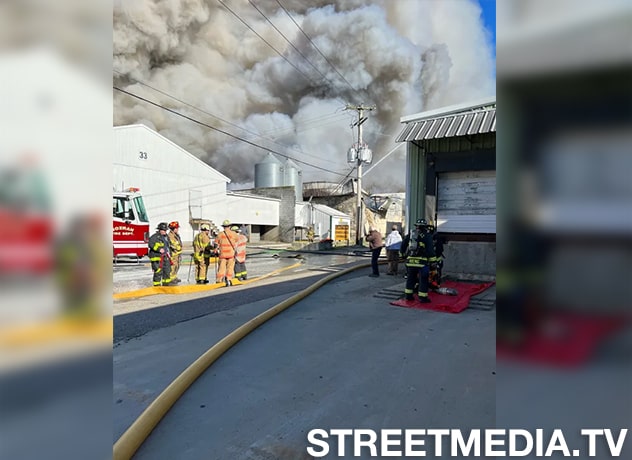Over 100,000 Chickens Dead As One Of The Largest Egg Suppliers Burns Down During Egg Shortage

A devastating fire swept through one of the country’s top egg-producers, resulting in the death of 100,000 chickens and hens. This tragedy not only resulted in the loss of countless lives, but also had a significant impact on the egg industry and local economy.
The fire, which is believed to have started in the early hours of the morning, quickly spread through the egg-production facility, causing extensive damage and destroying thousands of birds. Firefighters were quickly on the scene, but the intense heat and raging flames made it difficult for them to contain the fire and save the birds. Despite their best efforts, 100,000 chickens and hens were unable to be saved and perished in the blaze.
The loss of these birds is a significant blow to the egg industry, as this egg-producer was one of the top suppliers in the country. With a capacity to produce millions of eggs per day, the facility was a major contributor to the local economy and provided employment for hundreds of workers. The fire has disrupted egg production and may lead to shortages and price increases in the near term.
The cause of the fire is still under investigation, but early reports suggest that it may have been the result of an electrical malfunction. Regardless of the cause, the tragedy has raised important questions about the safety and security of large-scale egg-production facilities. In the wake of the disaster, many are calling for increased regulations and safety measures to prevent similar incidents from occurring in the future.
The impact of this tragedy extends beyond just the egg industry and local economy. For many, the death of 100,000 chickens and hens is a reminder of the importance of animal welfare and the ethical implications of large-scale industrial agriculture. The use of battery cages, which are widely used in egg production, has long been a controversial issue and has led to concerns about the treatment and living conditions of the birds. This disaster has once again brought these concerns to the forefront and sparked a conversation about the need for increased animal welfare standards in the industry.
In conclusion, the recent fire at one of the country’s top egg-producers was a devastating tragedy that resulted in the death of 100,000 chickens and hens. The impact of this disaster extends beyond just the egg industry and local economy, as it raises important questions about the safety and security of large-scale egg-production facilities and the treatment of animals in industrial agriculture. As the industry looks to rebuild and recover, it is important that we continue to have these important conversations and work towards finding a solution that prioritizes animal welfare and ethical considerations.



